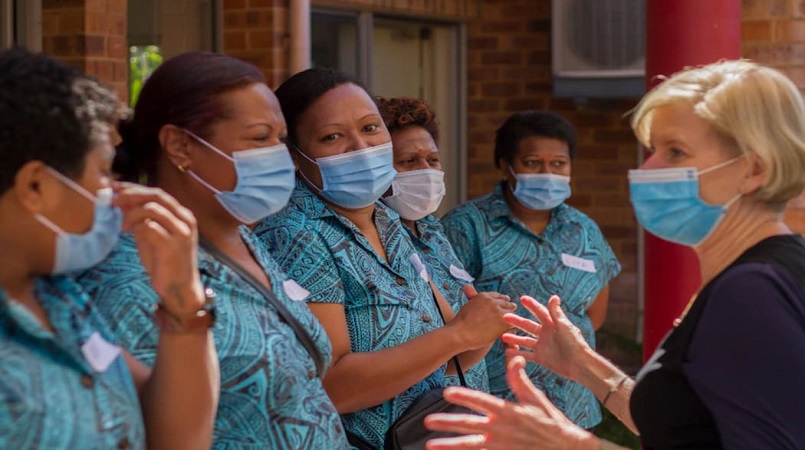
Australia is chasing Pacific workers to help fill shortages across the economy - particularly in aged care.
The federal government has expanded the Pacific Australian Labour Mobility Scheme to include aged care, hospitality and tourism industries in a bid to address workforce shortfalls.
A Committee for Economic Development of Australia report says the country needs to find an extra 35,000 aged care workers per year.
In Western Australia's south, six Fijian aged care workers have filled some of the vacant, much-needed positions caring for the elderly.
The workers were the first to arrive under the expanded PALM scheme.
CapeCare chief executive Joanne Penman said the workers had made a huge difference, working with the not-for-profit aged care provider for four months.
"In the short term, it's going to play a huge role and I think it's the only way the sector is going to cope," she said.
"If we posted a new ad, I wouldn't be confident that we'd get any applications at all, as we've had ads running for care workers since October last year."
Next month's Jobs and Skills Summit in Canberra will bring union and business leaders together to address staffing issues, wages and enterprise bargaining.
Aged and Community Care Providers Association interim chief executive Paul Sadler told the ABC Pacific Island workers would fill a limited portion of the empty roles.
"We're talking dozens rather than thousands of people [who] might be available," he said.
"We need an opening up of visas, not only for Pacific Islanders, but [also] more broadly, so we can prioritise aged care workers."
Pay increase
The federal government has promised to fund a potential aged care worker pay increase in a submission to the Fair Work Commission.
The independent wages umpire is considering a case brought forward by the unions, calling for a 25 percent pay increase for 200,000 residential and home care workers.
Aged Care Minister Anika Wells said a pay rise was the first step to addressing workforce shortages.
"We need more staff in aged care and a pay rise is the start of ensuring workers are rewarded for the crucial roles they play," she said.
"One of the main causes of the gender pay gap is low pay and poor conditions in care sectors like aged care, where the majority of workers are women.
"Increasing wages in aged care is essential to ensuring that men and women are paid equally."
The matter has been before the Fair Work Commission since 2020, with government and unions to put their cases forward during hearings this month.
Photo supplied Caption: CapeCare chief executive Joanne Penman with new Fijian aged care workers
